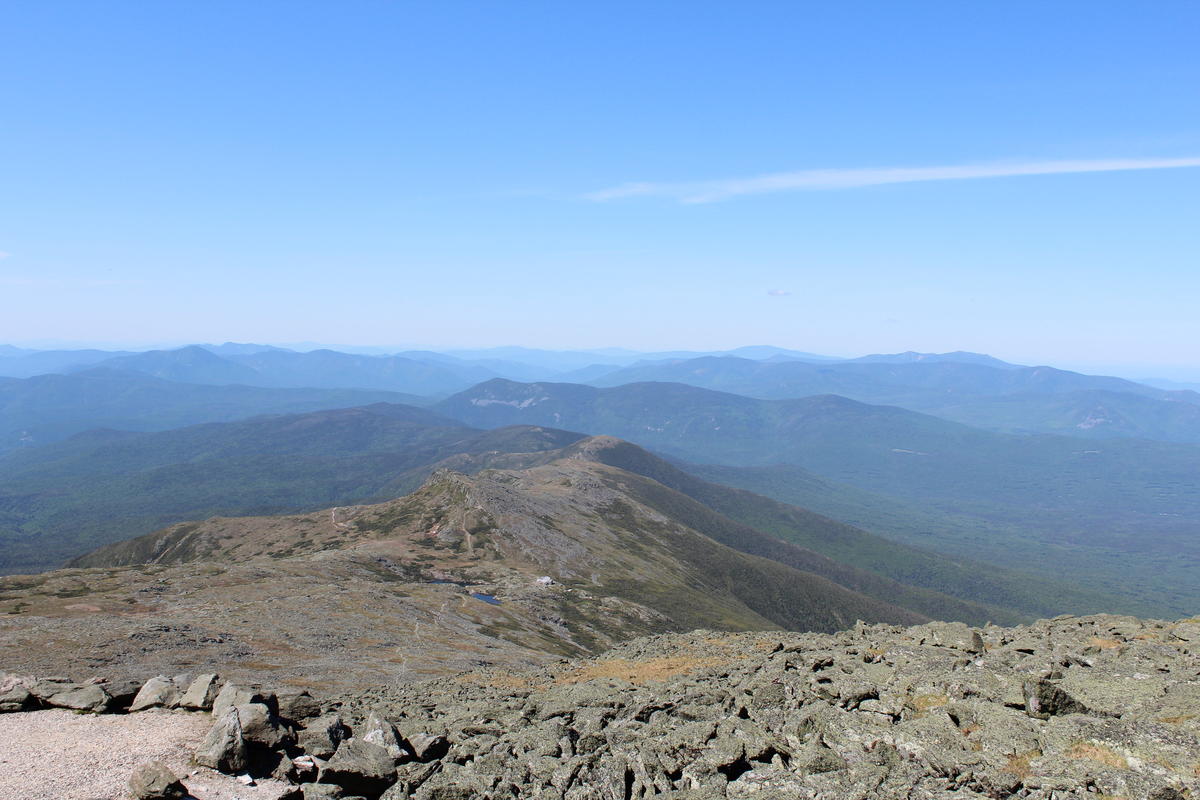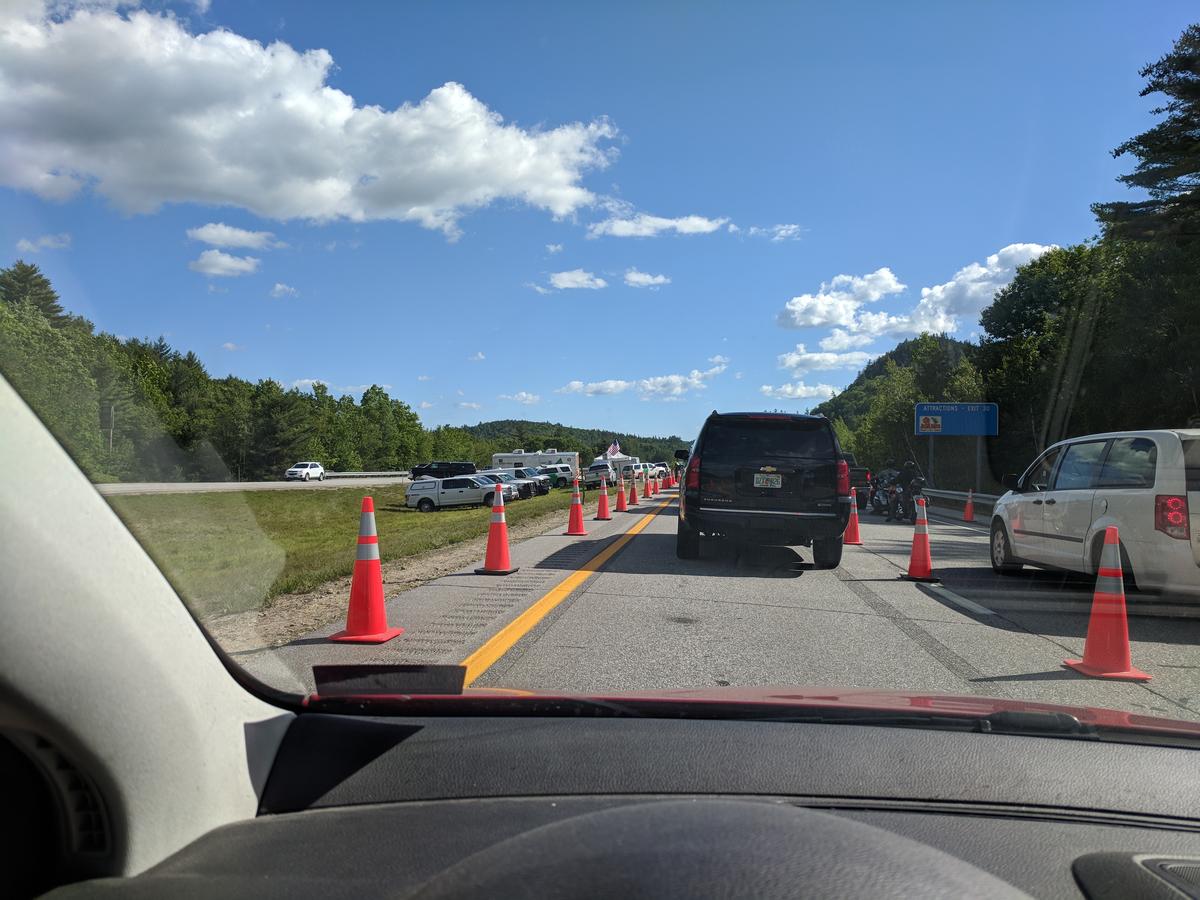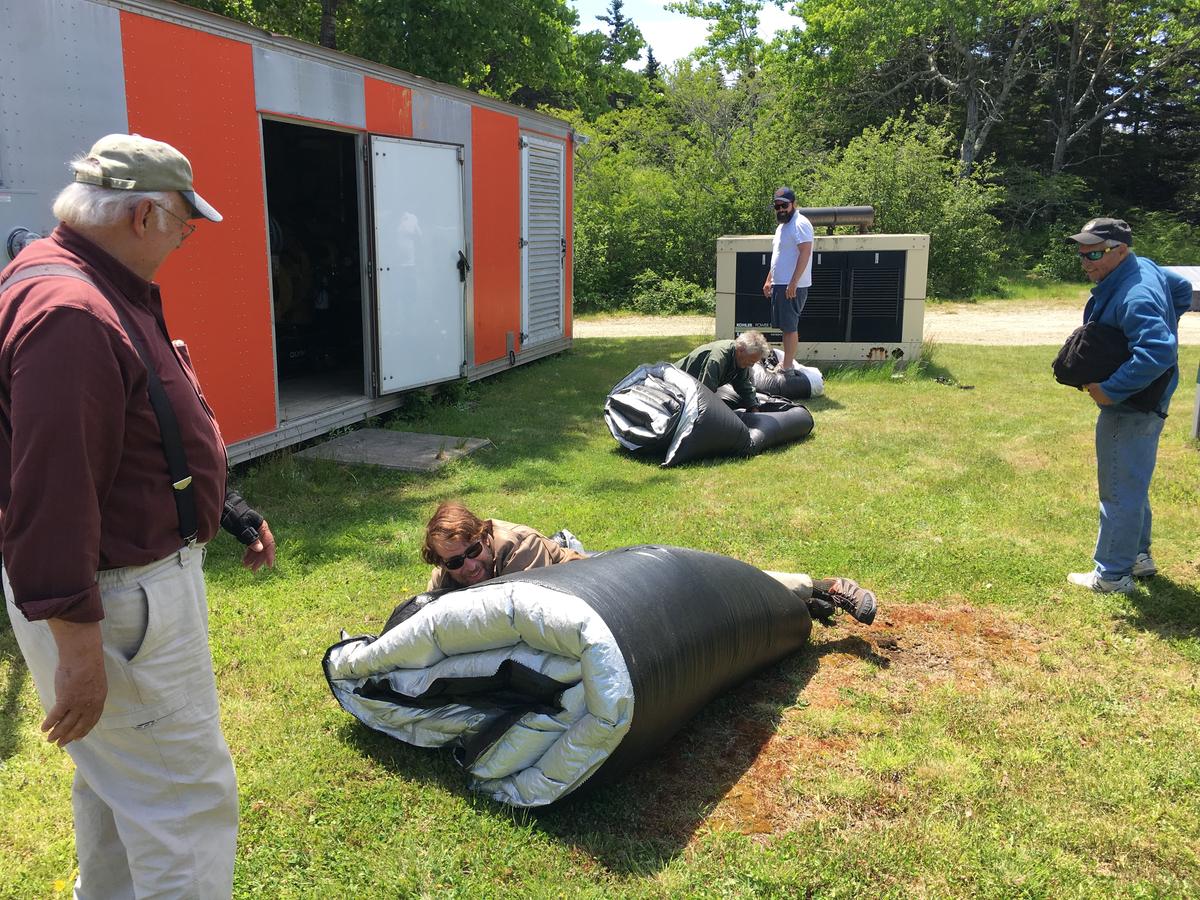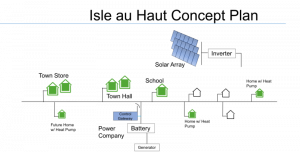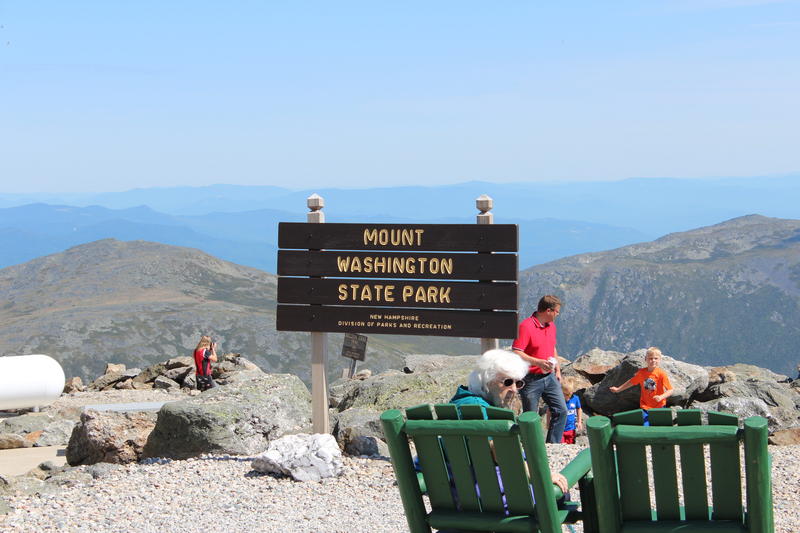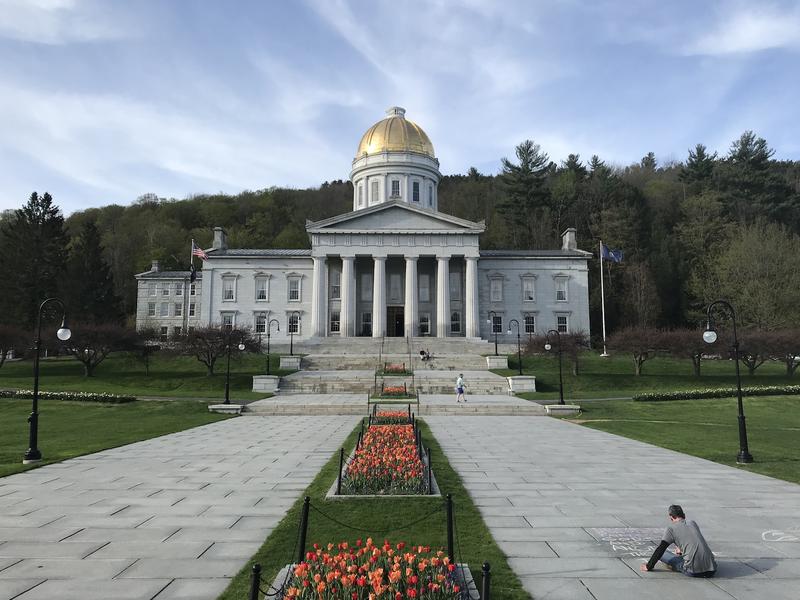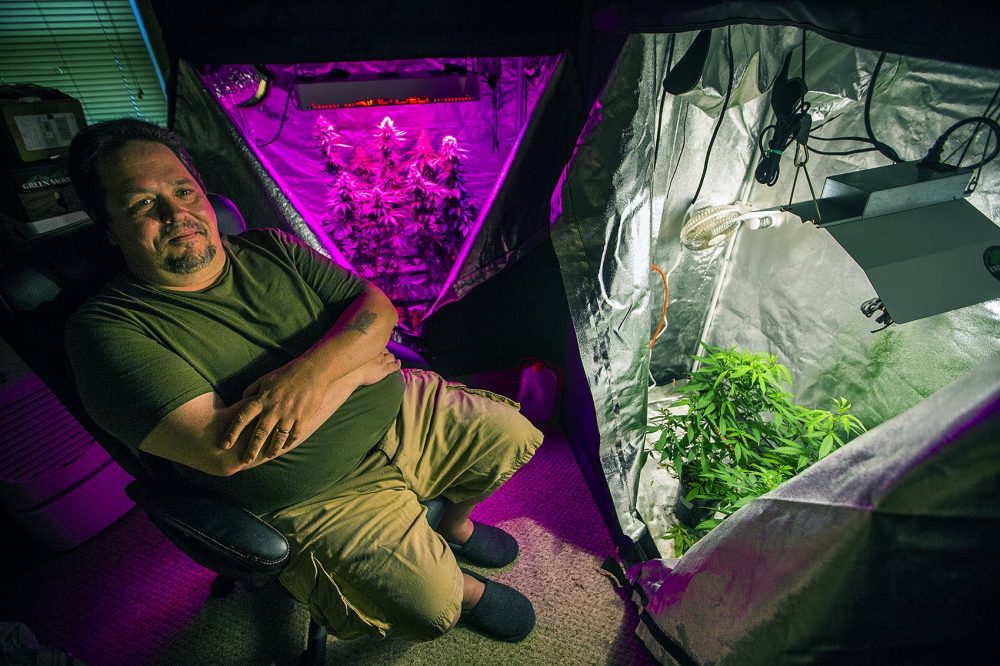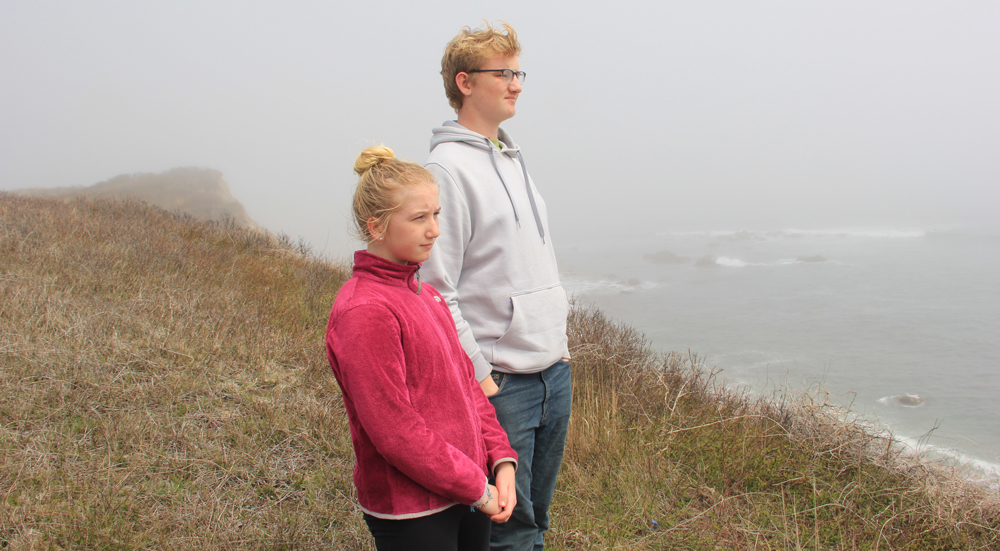Episode 102

This week we discuss border patrol checkpoints around New England and a recent arrest that was made in New Hampshire. And, we consider sustainable infrastructure around the region, including how a small island off the coast of Maine is transforming its energy system into what they call the next, next electricity grid. Tensions rise between preservation and tourism on top of Mt. Washington, and we see the effort being made to make the marijuana industry more energy efficient in Massachusetts. Also, as the state of Vermont narrowly avoided a government shutdown at the end of June, we check-in on Vermont politics. Finally, we get a tour of Cuttyhunk Island by the last two kids who live there. It’s NEXT.
Checkpoints Raise Concern Over Immigration Enforcement
U.S. Customs and Border Protection are legally allowed to stop people within 100 miles of any ‘external boundary’ in the country. Most of New England lies within this 100-mile zone. This policy was originally enacted in the early 1950s, but recently individuals and civil rights organizations have been raising concern over the practice of stopping cars and checking individual’s immigration status around the region. We discuss a recent arrest at one of these checkpoints in New Hampshire, and the future of the policy with NHPR’s Robert Garrova.
For more information about your rights at a checkpoint, read more from Maine Public and the American Civil Liberties Union.
Island in Maine Creates the Next, Next Electricity Grid
Renewable energy sources such as wind and solar are muscling their way into the country’s energy mix. But they’re pretty unpredictable, creating significant management challenges, and big swings in electricity prices.
Now, a small island several miles off of Maine’s coast is the laboratory for a big solution: islanders and engineers on Isle au Haut are using artificial intelligence, complex algorithms and a bootstrapping attitude to design what they’re calling the next, next electricity grid.
Maine Public Radio’s Fred Bever explains.
Tension Between Preservation and Tourism on Mt. Washington
A long-running debate about tourism versus preservation is heating up on top of the highest mountain in the Northeast. New Hampshire’s Mount Washington is attracting more visitors every year. And some fear its delicate ecosystems are at risk from proposed development and overuse.
NHPR’s Annie Ropeik has this story from the summit.
Vermont Legislative Session Comes to a Close
The state of Vermont narrowly avoided a government shutdown at the end of June, as Governor Phil Scott vetoed the first two budgets passed by the legislature, but eventually allowed the third to pass. But why was the budget this year so contentious as to nearly shut down the state’s government?
VPR’s Bob Kinzel joins us to tell us about what happened in the legislature this year, and to update us on the big stories in Vermont politics.
Marijuana Growers Go Green
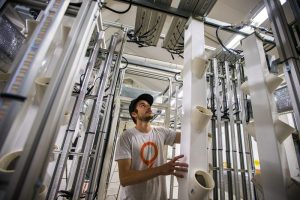
STEM Cultivation co-founder and chief technology officer Chris Denaro slides PVC columns, each one holding up to 12 cannabis plants, into the center aisle of the STEM Box. Photo by Jesse Costa for WBUR
Now that recreational marijuana has been legalized in Vermont and Massachusetts, the industry is facing new challenges around the region.
Cultivators in Massachusetts are facing constraints about how much energy they are allowed to use, due to the state’s tough regulations. But marijuana is not very energy efficient, in fact, the typical pot-growing facility uses eight to ten times as much energy as an office of a similar size. And, due to the state’s Global Warming Solutions Act, the industry is being forced to find new ways to go green.
WBUR’s Bruce Gellerman introduces us to some of the people who are helping Massachusetts’ marijuana growers reach their energy reduction goals.
The Last Kids on Cuttyhunk Island
Cuttyhunk Island is 12 miles off the Massachusetts coast but it can feel worlds away. Only a dozen people live on the island year-round. Two of them are children: siblings Gwen and Carter Lynch, the only students at the last one-room schoolhouse in the state. The school only goes up to 8th grade, so both kids will move to the mainland in the next couple of years to attend boarding high school.
As Bayla Metzger reports, this will mean a major change for the kids and the island.
About NEXT
NEXT is produced at Connecticut Public Radio
Host: John Dankosky
Produced with help this week from Lily Tyson
Digital Producer: Carlos Mejia
Executive Producer: Catie Talarski
Contributors to this episode: Robert Garrova, Fred Bever, Annie Ropeik, Bob Kinzel, Bruce Gellerman, Bayla Metzger
Music: Todd Merrell, “New England” by Goodnight Blue Moon, “The Soft Glow” by Will Bangs, “Bittersweet Reel” by Chris Thile
Stream every episode of NEXT.
We appreciate your feedback! Send critiques, suggestions, questions, and ideas to next@wnpr.org. Follow us on Facebook and Twitter.
If you like what you hear, make sure to rate and review us on iTunes so other listeners can hear conversations from around New England.

